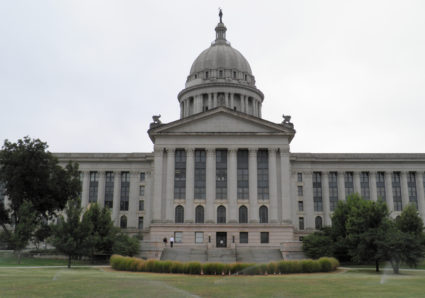
A largely unexplored area of Indonesia may be home to the oldest rock art studied so far, dating back to…

OKLAHOMA CITY — A federal judge has struck down an Oklahoma law that requires an artist to be a member of a federally recognized tribe in order to have their artwork labeled as Native American.
U.S. District Judge Charles Goodwin ruled Thursday that the Oklahoma Indian Arts and Crafts Sales Act violates the U.S. Constitution because it gives a more narrow definition of Native American than federal law, The Oklahoman reported.
"In doing so, the State Act diminishes 'the market for the products of Indian art and craftsmanship,'" Goodwin said.
The Indian Arts and Crafts Act of 1990 allows art to be marketed as Native American even if the tribe is only recognized at the state level, Goodwin said. Oklahoma's law violates the constitutional provision that gives federal law precedence over state law, even though both seek to protect and promote Native American artists, he said.
The Oklahoma Attorney General's Office had defended the state law. A spokesman said the office is reviewing the decision.
The Oklahoma law originally passed in 1974. It was amended in 2016 with the narrower requirement that an artist belong to a federally recognized tribe.
Peggy Fontenot challenged the law amendment in 2017. Fontenot is a member of the Patawomeck Indian Tribe of Virginia, which is recognized by the Commonwealth of Virginia but not by the federal government. She said the state law violated her constitutional right to equal protection and freedom of speech.
Goodwin rejected the argument and also found that the state law doesn't violate interstate commerce protections because it only restricts the marketing, and not the sale, of art.
Sustain our coverage of culture, arts and literature.